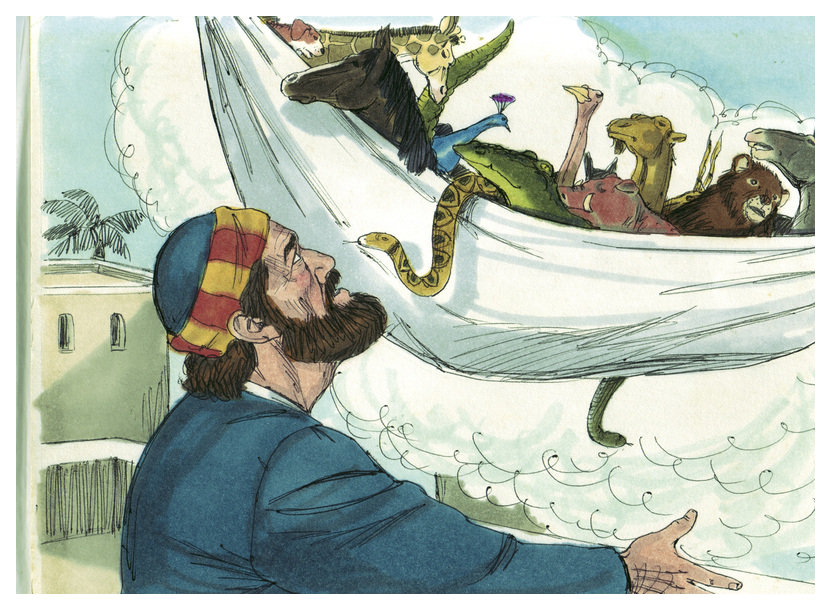To accompany your Come Follow Me study for July 17-23
In addition to reading the indicated chapters, you may wish to:
Read the applicable portions of the New Testament Institute Student Manual at
See the following videos:
- Come Follow Me (July 17-23) | Baggage Busters | Acts 10-15 at (2) Come Follow Me (July 17-23) | Baggage Busters | Acts 10-15 – YouTube
- Peter’s Revelation to Take the Gospel to the Gentiles at Peter’s Revelation to Take the Gospel to the Gentiles – YouTube
- The Jerusalem Conference at The Jerusalem Conference – YouTube
- Acts of the Apostles (minute 1:01:44-1:42:21) at https://www.youtube.com/watch?v=q5bTIUrUw0M
If you would like a Kahoot game related to this material which you could use for personal study or use with your family or your class, click here: https://create.kahoot.it/share/acts-10-15/8e702261-448c-421f-96ca-2720ecf92b07. (To use it with a group, after clicking on this link, you will need to log into Kahoot, creating a free account if you have not done so previously, then click on the blue “Start” button.)
Points to Ponder in Acts 10-15
1. Is it possible for a President of the Church to have some mistaken ideas? Cite a passage from Acts 10-15 in support of your answer.

2. If you said “yes” to the preceding question, how do you reconcile your answer with Wilford Woodruff’s statement following Official Declaration 1 in the Doctrine and Covenants where he promises, “The Lord will never permit me or any other man who stands as President of this Church to lead you astray”?
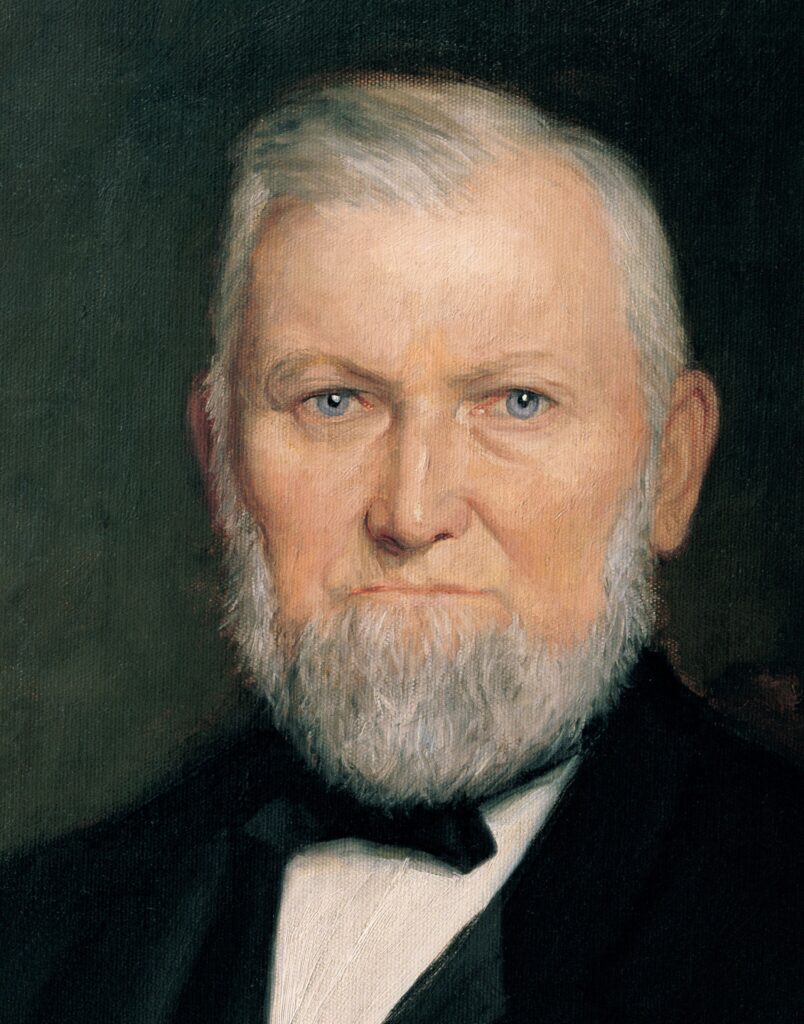
3. Up to what point will God allow His prophet to hang onto mistaken or outdated ideas?
4. Why didn’t the angel who appeared to Cornelius tell him directly what he should do rather than have him hunt down Peter?
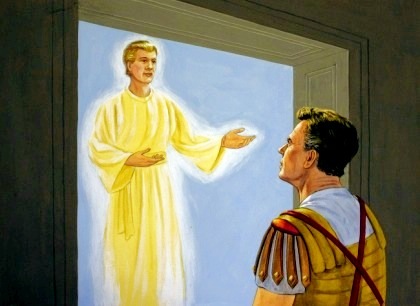
5. Look at the following references: Ex. 12:48; Luke 2:14; 4:25-27; Matt. 3:7-9; 8:10; 15:28; 24:14; 28:19; Mark 16:15; John 4:7-30; Acts 1:8. Shouldn’t Peter have known from this that the gospel was for the Gentiles, too? Why did it require a special vision?
6. What parallels do you see between Peter’s vision in Acts 10 and Joseph Smith’s first vision? Between Peter’s vision and Nephi’s revelation in 1 Nephi 4? Between Peter’s vision and the priesthood revelation of 1978?
7. Why were those of African descent not entitled to the priesthood or temple blessings until 1978? What could you say to a black friend who said, “I could never be baptized in a church which practiced racial discrimination”?

8. Why do you suppose the Lord didn’t speak more directly to Peter and tell him that the gospel was now to be taken to the Gentiles rather than beat around the bush with symbolic visions that left Peter himself wondering what it all meant?
9. What additional importance does Acts 10:34-35 have for Latter-day Saints, beyond what it would have for Christians in general?
10. What special application could Acts 10:41 have for a Latter-day Saint missionary?
11. How could Cornelius and his group receive the gift of the Holy Ghost before they were baptized? (10:44-45.) Should every investigator expect a similar experience before baptism?
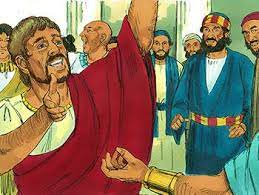
12. Since Peter was president of the Church, how was it that some members dared to argue with him? (11:2.) How did Peter put an end to their doubts?
13. Why do you suppose an angel helped Peter out of prison in 12:6-10, and why did the angel leave him when he got out onto the street? Shouldn’t Peter have suspected that his escape would lead to the death of some comparatively innocent prison guards? (v. 19) Was it fair for him to leave prison under those circumstances?
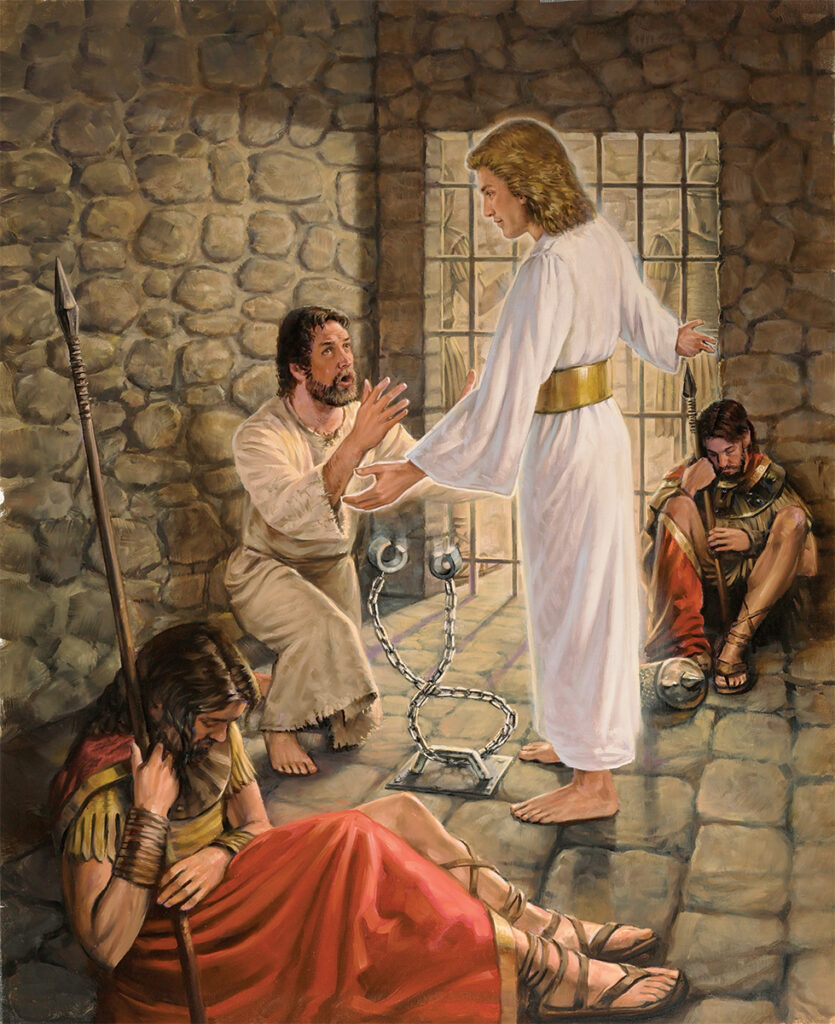
14. What humor, if any, do you find in 12:12-16?
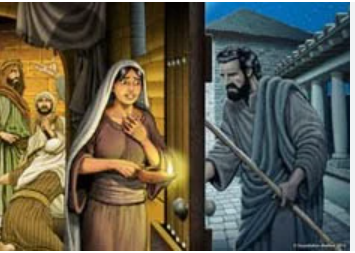
15. What lesson do we learn from Herod’s death as recorded in 12:21-23?
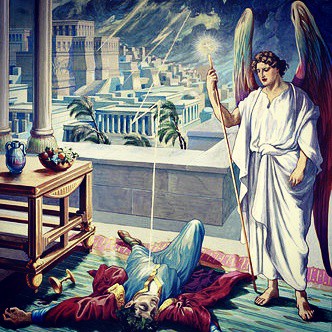
16. What additional evidence do you find in these chapters of welfare programs in the ancient church?
17. What evidence do you see that Peter was the new president of the Church?
18. If Herod killed James in Acts 12:2, how is it we have the book of James appearing 150 pages later in the New Testament or find James taking an active part in the Jerusalem conference in Acts 15?

19. Find and give the reference for up to 20 revelations, miracles, or other spiritual gifts experienced by the early church (as recorded in Acts 10-15):
20. How many separate incidents of persecution can you find that the early apostles encountered in these chapters?
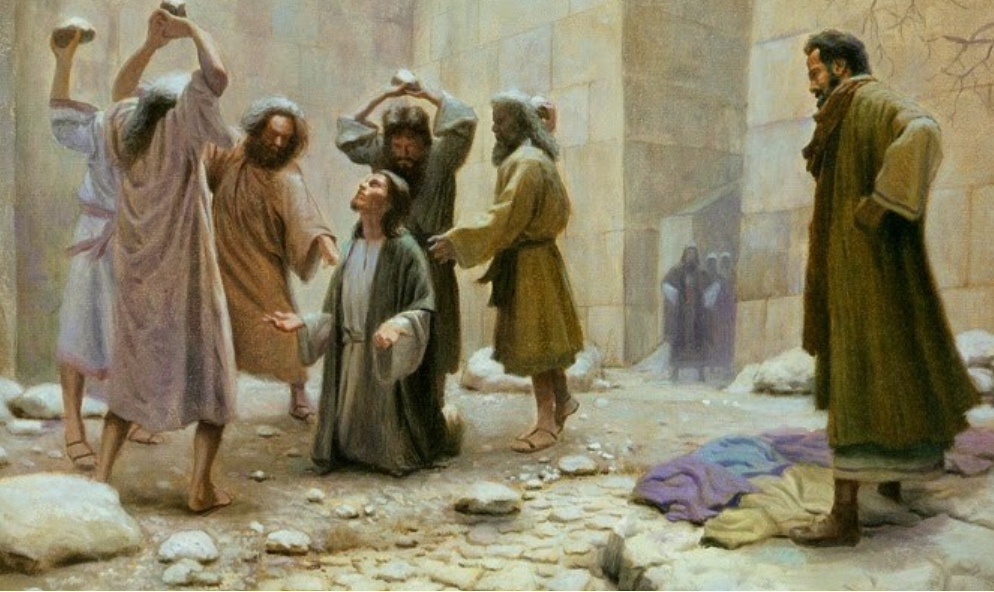
21. What principles of good missionary work stand out to you in these chapters?
FIND a reference in Acts 10-15 which supports each of the following points:
22. Support for the 5th Article of Faith.
23. Predestination is not a true gospel principle.
24. It is important that a sick person have faith in order to be healed.
25. Miracles don’t have permanent converting power.
26. Even apostles are human beings with human weaknesses which God tolerates as they strive to overcome them.
27. God is omniscient.
28. Both reason and inspiration are needed in church administration.
Possible Answers to Points to Ponder in Acts 10-15
1. Is it possible for a President of the Church to have some mistaken ideas? Cite a passage from Acts 10-15 in support of your answer.
We find from Acts 10:10-15, 28 that prior to his vision, Peter thought that the gospel was still to be limited to literal Israelites.
2. If you said “yes” to the preceding question, how do you reconcile your answer with Wilford Woodruff’s statement following Official Declaration 1 in the Doctrine and Covenants where he promises, “The Lord will never permit me or any other man who stands as President of this Church to lead you astray”?
Peter did not lead the Church astray, though he could have done so without new revelation. Up until that point, preaching the gospel really was limited to those of the House of Israel. Jesus Himself had indicated that His apostles were not to go “into the way of the Gentiles” but that they should “go rather to the lost sheep of the house of Israel.” (Matthew 10:5-6.)
3. Up to what point will God allow His prophet to hang onto mistaken or outdated ideas?
Until they interfere with His work. For example, it is clear that Brigham Young and other early Latter-day Saint leaders believed that those of African descent would not be permitted to receive the priesthood until at least the Millennium. They were wrong. But it did no harm until the day came, during President Spencer W. Kimball’s administration, for the Lord to extend those blessings to all worthy men, at which point He gave the revelation recorded in Official Declaration 2.
4. Why didn’t the angel who appeared to Cornelius tell him directly what he should do rather than have him hunt down Peter?
He wanted to teach him about His Church, not merely about His gospel. Baptism was an important next step for Cornelius and his family, and he couldn’t receive that without going to the duly authorized head of the Church, inasmuch as his baptism would represent a major change of Church policy.
5. Look at the following references: Ex. 12:48; Luke 2:14; 4:25-27; Matt. 3:7-9; 8:10; 15:28; 24:14; 28:19; Mark 16:15; John 4:7-30; Acts 1:8. Shouldn’t Peter have known from this that the gospel was for the Gentiles, too? Why did it require a special vision?
Peter may well have known from such revelations that salvation would eventually be offered to the Gentiles, but he would not know that the time had now arrived. Only new revelation could confirm that point.
6. What parallels do you see between Peter’s vision in Acts 10 and Joseph Smith’s first vision? Between Peter’s vision and Nephi’s revelation in 1 Nephi 4? Between Peter’s vision and the priesthood revelation of 1978?
Peter and Joseph Smith were both surprised by the content of their revelations. Peter and Nephi both received instruction which superseded previous revelation on the subject. Peter and President Kimball both presided over the opening of the door for new groups of God’s children to receive the full blessings of the gospel.
7. Why were those of African descent not entitled to the priesthood or temple blessings until 1978? What could you say to a black friend who said, “I could never be baptized in a church which practiced racial discrimination”?
The Lord has not revealed the reason for the previous restriction. But we can help our friend realize that it is not necessary for us to know the reason for the past policy in order for us to have a testimony that the gospel is true and that both past and present leaders have acted under inspiration from God.
8. Why do you suppose the Lord didn’t speak more directly to Peter and tell him that the gospel was now to be taken to the Gentiles rather than beat around the bush with symbolic visions that left Peter himself wondering what it all meant?
Most likely He wanted Peter to think deeply about the subject rather than just uncritically accept new revelation.
9. What additional importance does Acts 10:34-35 have for Latter-day Saints, beyond what it would have for Christians in general?
It suggests that if God would speak to His righteous children in the Old World, He would surely do the same for those in the New World. And if He would speak to His ancient saints, He would be willing to do the same in modern times.
10. What special application could Acts 10:41 have for a Latter-day Saint missionary?
It could help answer those who think it preposterous that we would expect them to believe in the Book of Mormon, when we can’t show them the plates from which it was translated.
11. How could Cornelius and his group receive the gift of the Holy Ghost before they were baptized? (10:44-45.) Should every investigator expect a similar experience before baptism?
Although Cornelius, his family, and friends received the “gift” of the Holy Ghost in one sense, prior to their baptism, it was not the permanent “Gift” which is conferred by the laying on of hands following the baptismal ordinance. Yes, every prospective convert should receive a manifestation from the Holy Ghost prior to baptism to give him a testimony of the gospel and qualify him for the remission of his sins through baptism, as D&C 20:37 makes clear.
12. Since Peter was president of the Church, how was it that some members dared to argue with him? (11:2.) How did Peter put an end to their doubts?
In those days everyone was a recent convert and didn’t fully understand the role of the head of the Church. Rather than get angry or call the doubters to repentance, Peter simply related to them the details of his vision, and the Spirit bore witness that it was true, leading the former skeptics to “hold their peace” and “glorify God.”
13. Why do you suppose an angel helped Peter out of prison in 12:6-10, and why did the angel leave him when he got out onto the street? Shouldn’t Peter have suspected that his escape would lead to the death of some comparatively innocent prison guards? (v. 19) Was it fair for him to leave prison under those circumstances?
This is a good reminder that God and His angels typically help us only so far as is necessary. Peter couldn’t have escaped without divine help, but once he was outside the prison, he could go forward on his own without needing the angel to walk with him. It may seem unfortunate, from an earthly perspective, that innocent prison guards lost their lives because of the angel’s intervention, but Peter certainly can’t be blamed for that. And after a few terrifying moments, the guards themselves were much better off in paradise than in the sin-filled world in which they had been living.
14. What humor, if any, do you find in 12:12-16?
I personally find it hilarious that Rhoda leaves Peter knocking at the gate, rather than let him in, while she runs to tell the rest of the occupants of the house that Peter was outside.
15. What lesson do we learn from Herod’s death as recorded in 12:21-23?
It sounds like we’d better be careful not to take too much personal credit when people tell us what a wonderful talk we gave in sacrament meeting!
16. What additional evidence do you find in these chapters of welfare programs in the ancient church?
- The Church was forewarned of upcoming economic difficulties through revelation. (11:28)
- Those who had surplus donated to the relief of those most affected by the famine. (11:29)
- Priesthood blessings helped some who were previously unable to provide for themselves. (14:8-10)
17. What evidence do you see that Peter was the new president of the Church?
- It is Peter who receives the vision and revelation about taking the gospel to the Gentiles. (10:3-48)
- It is Peter who explains the new policy to the doubters in Jerusalem. (11:2-18)
- Peter is clearly the principal target of Herod in Acts 12.
- At the Jerusalem conference, it is Peter who rises up and convinces the rest of the leaders that Gentile converts should not be subjected to circumcision. (15:7-11.)
18. If Herod killed James in Acts 12:2, how is it we have the book of James appearing 150 pages later in the New Testament or find James taking an active part in the Jerusalem conference in Acts 15?
The James whom Herod killed was the brother of John. The other James, whom we find at the Jerusalem conference and who wrote the book of James, was the half-brother of Jesus Christ.
19. Find and give the reference for up to 20 revelations, miracles, or other spiritual gifts experienced by the early church (as recorded in Acts 10-15):
- Cornelius had a vision. (10:3)
- Peter sees a vision and hears a voice three times (10:10-16)
- Peter is told by the Spirit to go to Joppa with Cornelius’ men (10:19-20)
- The Holy Ghost fell on everyone in Cornelius’ group (10:44)
- Speaking in tongues (10:46)
- “The hand of the Lord” accompanies missionaries in Antioch (11:21)
- Agabus prophesies of an upcoming dearth throughout the world (11:28)
- An angel lets Peter out of prison. (12:7-10)
- An angel of the Lord kills Herod (12:23)
- The Holy Ghost inspires the calling and setting apart of Paul and Barnabas (13:2)
- 13:9: Paul speaks to Elymas as prompted by the Holy Ghost
- 13:11: Elymas blinded
- 13:52: disciples filled with joy (despite persecution) and the Holy Ghost
- 14:3: signs and wonders
- 14:8-10: cripple healed
- 14:20: Paul healed from stoning
- 15:18: it seemed good to the HG and us!
- 15:32: Judas and Silas exercise the gift of prophecy.
20. How many separate incidents of persecution can you find that the early apostles encountered in these chapters?
- 12:2: James is killed by Herod
- 12:3-4: Peter is imprisoned
- 13:45: contradiction and blaspheming
- 13:50: persecution and expulsion
- 14:2-5: assault with intention to stone
- 14:19: Paul stoned
21. What principles of good missionary work stand out to you in these chapters?
- Following the guidance of the Spirit (13:4)
- Role of boldness and courage in missionary work. (13:46; 14:3)
- Importance of building up the church as well as baptizing new converts. (14:23)
- Importance of teaching only the basic doctrines and not adding to them your own unauthorized ideas. (15:10)
- Following up with those previously taught. (15:36)
- Benefits of going two by two. (15:39-40)
FIND a reference in Acts 10-15 which supports each of the following points:
22. Support for the 5th Article of Faith.
13:2-3
23. Predestination is not a true gospel principle.
See the footnote at 13:48.
24. It is important that a sick person have faith in order to be healed.
14:9
25. Miracles don’t have permanent converting power.
14:8-19. From one verse to the next, those so impressed by the healing miracle that they wanted to worship Barnabas and Paul as gods are so incensed that they want to stone them to death.
26. Even apostles are human beings with human weaknesses which God tolerates as they strive to overcome them.
14:15; 15:1-2; 15:39-40
27. God is omniscient.
15:18
28. Both reason and inspiration are needed in church administration.
15:28
